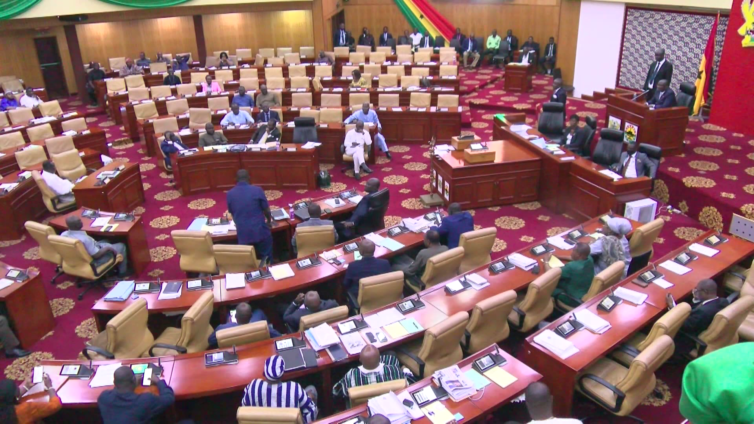A development economist has advised the government to tread cautiously in its bid to impose restrictions on the import of certain products.
Prof. Ebo Turkson insists that as the government works to finalize this controversial legislative instrument, many factors must be considered to avoid leaving negative repercussions on the country.
The associate professor made these comments on Joy FM's Super Morning Show on Wednesday, November 29, 2023.
“We should be careful we don't come up with something that is going to be costly to Ghana, and we'll have no potential benefits that we foresee, apart from the fact that those who have the licenses will make much more money and know what will happen if they make that money,” he said.
For him, the employment of adequate data in the roll-up process will be crucial in ensuring a well-targeted policy.
While admitting that the policy could accelerate demand for local goods, Prof Turkson does not believe it will be a walk in the park.
"I'm not saying we shouldn't restrict, but we should use better ways of doing this. And it should be informed by data. And it should be a gradual process of assessing the domestic production capacity, the demand, the shortfall, and how we restrict using, for instance, a central bank..." he added.
Already, six business associations have submitted a petition to Parliament urging the House to reject the bill proposed by the government through the Ministry of Trade and Industry.
The Joint Business Consultative Forum, comprising associations such as the Ghana Union of Traders Associations (GUTA), Food and Beverages Association of Ghana (FABAG), Importers and Exporters Association of Ghana, Ghana Institute of Freight Forwarders (GIFF), Chamber of Automobile Dealership Ghana (CADEG), and Ghana National Chamber of Commerce and Industry (GNCCI), argue that the bill if enacted, would have detrimental effects on their businesses.
The petition, dated Sunday, November 26, outlined concerns that the legislation could negatively impact the prices of goods, disrupt the free flow of goods, and potentially harm businesses.
Meanwhile, the President also expresses concerns about the absence of funding for farmers under the Planting for Food and Jobs program in the 2024 budget.
Find full list of 22 items considered for import restriction below:
- Rice
- Guts, bladders and stomach of animals
- Poultry
- Animal and Vegetable Oil
- Margarine
- Fruit Juices
- Soft Drink
- Mineral Water
- Noodles and Pasta
- Ceramic Tiles
- Corrugated Paper and Paper Board
- Mosquito Coil and Insecticides
- Soaps and Detergents
- Motor Cars
- Iron and Steel
- Cement
- Polymers (Plastics and Plastic Products)
- Fish
- Sugar
- Clothing and Apparel
- Biscuits
- Canned Tomatoes
Latest Stories
-
Donewell Life Assurance rebrands to Pinnacle Life Insurance: A new era of excellence
24 mins -
NDC blames ECG’s poor revenue collection for energy sector challenges
26 mins -
MEST Africa, Mastercard Foundation celebrate EdTech Innovations at Demo Day in Accra
31 mins -
AWA reaffirms commitment with FOD Walk during Safety Week
35 mins -
Kuami Eugene hopeful he’ll be first Lynx artiste to survive after leaving the label
46 mins -
Akufo-Addo seeks to use Bawumia to complete Akyem agenda – Asiedu Nketia alleges
48 mins -
National Cathedral: CHRAJ recommends investigation, contract cancellation, possible prosecution
52 mins -
Dr James Orleans-Lindsay wins Man of the Year at 9th EMY Africa Awards
54 mins -
Medical Council to enforce specialist distribution nationwide
1 hour -
Fire guts old Fadama market, man reportedly loses GHC800,000
1 hour -
Nacee bemoans low performance fees for gospel artistes
1 hour -
We don’t operate investment platform – GNPC
2 hours -
Ghana Fact-checking Coalition condemns disinformation on voting by Wontumi FM broadcaster
2 hours -
IFRS 17 will augment and accelerate NIC’s efforts to implement risk-based capital – Deloitte
2 hours -
IFRS 17 is one of biggest changes to financial reporting standards in insurance industry – Deloitte
2 hours

